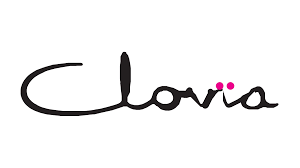Do you have a bank locker or are you thinking about opening one. The goal is to provide a comprehensive understanding of bank locker agreements, associated charges, relevant fine print, and customer rights.
Read More : Process to Post a Live Photo on Instagram with Your iPhone
Bank Locker Rules
1. The main point to remember is that anyone can open a locker at any bank, regardless of whether they have an existing banking account there or not. Even if you have no prior relationship with a bank, you can still obtain a safe deposit locker. For example, suppose you have your salary account at Bank A, your savings at Bank B, and no affiliations with Bank C nearby. In such cases, you can still approach Bank C. While you must complete the KYC process, you can still reserve a bank locker at that particular bank.
Read More : A short-term job-oriented courses that boost your career
2. Another common issue that many people face is when banks inform them that no lockers are available. However, due to a change in RBI regulations in August 2021, banks are now required to keep track of vacant lockers as well as a waitlist of customers. As a result, when you apply for a locker at a bank, they must acknowledge your application, respond to it, and either assign you a locker if one is available in your preferred location or provide you with a waitlist number. This ensures transparency and accountability throughout the locker allocation process.
Read More : The Most Prosperous Zodiacs in Saturn Year 2024
3. The third factor to consider is that the bank may require you to open a Fixed Deposit (FD) if you want to secure a locker. This requirement usually applies to new customers, especially those who are new to the bank. While this may appear stringent, the underlying rationale is to ensure that the bank has recourse in the event of a default or neglect of the locker. The bank cannot demand an FD for an arbitrary amount; it must be for a specific amount. According to the regulations, the FD must be funded with an amount equivalent to three years’ worth of rent, as well as any charges specified by the bank for breaking open the locker if rent has not been paid for three years.
Read More : You Can Pick the Best Credit Card for Your Lifestyle
4. When it comes to locker nominations, many people overlook their importance. However, banks must provide a nomination facility. It is critical to have a nominee associated with your locker and understand the procedures for selecting, changing, or determining the nominee’s rights and powers. Furthermore, the nominee must understand what actions to take if the locker holder dies.
Read More : You Can Pick the Best Credit Card for Your Lifestyle
5. The final and most important point to remember is that the items you store in the locker are not insured. The bank cannot provide insurance for the contents of your locker. The bank does have some liability, but it is limited. The bank’s liability is limited to one hundred times the annual locker rent. If your annual locker rent is Rs 5000, you will be covered for losses up to Rs 5 lakhs. This coverage includes events like fire, theft, robbery, and building collapse. As a result, if you keep valuable items like jewelry in the locker, it is best to have them professionally appraised and insured separately.








